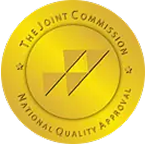Keep Calm and Carry On: Helpful Reminders for Managing Holiday Stress

The holidays are rife with triggers. For many, they are indicative of jovial social events and spending time with family. For others they can be a lonely and isolating time. But no matter what your personal circumstances, there is always the potential for unexpected feelings and emotions to arise.
The key to maintaining your sobriety and your emotional health during the holidays is to manage your expectations and follow the Boy Scouts motto of “Always Be Prepared.”
Manage Expectations
Everything doesn’t have to be perfect. So what if the cookies are a little burned, the wrapping paper is crinkled, and the tree is lopsided? The joy is in the doing and the sharing of the experience, not the outcome.
Hand in hand with “everything doesn’t have to be perfect” is that you don’t have to be happy all the time either. We often convince ourselves that we must always have a smile on our face and that our emotions must always be positive, but sometimes they’re just not. And that’s OK. The holidays are stressful. Family is stressful. By simply acknowledging that we feel sad, or angry, or less than happy, we can change our perception and expectation of any given situation.
So your mom drives you nuts, your brother still gets away with everything, and your aunt asks way too many personal questions. You know that they haven’t changed, but the most important thing is that you have. Go into these interactions knowing that the only thing that you can control is yourself and how you react. If the conversation takes an uncomfortable turn, take a deep breath and excuse yourself.
You know that your best friend from college is going to invite you to her holiday party. And you know that alcohol will be served. It’s OK to say, “Sorry, but I can’t make it this year”. And you might have to say that several times. Don’t beat yourself up about it. Instead, make one-on-one plans with your friend in a more private setting where you can better control the situation.
For those that find themselves away from friends and family during the holidays, be mindful about how you spend your time. Research a cause that you’re passionate about and volunteer. Get a jump on your new year’s fitness goals and join the gym. Ask someone you trust to help keep you accountable to not just sitting around the house alone.
Start new traditions. Make new memories. A vital part of recovery is switching up your routine so as not to fall back into old, potentially detrimental habits. Why should the holidays be any different? Talk to your family about doing something new this year. Suggest hosting dinner at a different location. Instead of sitting around watching football after the Thanksgiving meal, play a game of flag football in the back yard. And don’t be afraid to skip some of the old traditions all together. (Nobody really likes fruitcake anyway!)
Always Be Prepared
If you decide to go the party after all, practice a few brief responses to use if someone offers you a drink. “No thanks! I’m good!” works just fine. Don’t feel obligated to tell anyone why you’re not partaking. Your reasons are personal and private; you don’t owe anyone an explanation.
Don’t go around empty handed. Whether it be sparkling water, apple cider, or a soda, the best way to keep someone from offering you a drink is to already have one!
If you start to feel nostalgic for “the good ol’ days”, take a moment and bring yourself back to reality. Remind yourself of why your sobriety is so important; of all the positive things in your life that sobriety has made possible. If your emotions really start to get the better of you, head to a meeting or call your sponsor. Know that you are not alone and others are available to support and encourage you.
Have an exit strategy. If you are at a social event or even a family gathering, make a plan for when to leave. Take a friend with you who can make an excuse for stepping out of the room. Set a timer on your phone, and when it goes off, say you have to make a phone call. And if it all possible, always drive yourself to that you can leave when you want to. Who cares if you leave early? The thing is to do what’s right and healthy for you.
As you head into the holiday season, remember to be honest with yourself. You know which circumstances and which people are difficult to manage. Don’t push yourself beyond your limits and don’t berate yourself if you have to pull the escape hatch on a situation. Use the hard-won skills that you’ve learned in recovery: contact your sponsor regularly and stay in touch with your support network. Beef up your meeting attendance. There are even meetings held on holidays; make them part of your new holiday tradition. Remember: recovery is a life-long process. And you get better at it every day.






